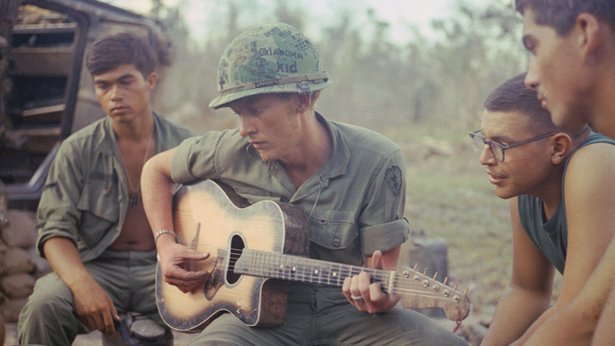
Music in Times of War
History has taught us that music is an art form that can make its way into every place and context there are ears to listen, this includes celebrations, complement other art forms, entertainment, politics and even war. There have been many events throughout history that have taken advantage of the power of music, as in a power that can move and alter someone’s feelings. One of these feelings is the inspiration a human being needs to leave fear aside, be brave and fight for a specific goal.
From Ancient Greece to Modern Times

Music in war has served several functions, since ancient times, from songs made for heroes, to convey bravery in the battlefield or to serve as prelude to war in camps.
In Greece, and Rome, drums, brass and horns were used as instruments for war.
However in the middle ages, the role of music changed and now it was only prominent near churches and could not be found near battlefields for some time. This changed during the Crusades as the Saracens began to use music as a military instrument for communication.
It became clear that music as an instrument to give orders and communicating in a way that the enemy would not understand was a valuable tactic that should not go to waste.
Niccolo Machiavelli took some interest in the role of music in war saying that:
I place the trumpets, as better fitted than any other [instrument] to be heard in the midst of noise of every kind … [And] near the constables and the battalion commanders, I wish there to be little drums and flutes, played not as they now are in armies, but as they are usually played at banquets.
With technological advances and drastic differences in the way wars were handled, music started to fill the role of propaganda and a way to boost people’s morale in times of crisis.
There was also a shift from Jazz and Classical music towards protest music around world war 2 and the Vietnam war.
A New Kind of Weapon in War

In “Stop Making Sense: Music from the Perspective of the Real” Scott Wilson talks about Operation Just Cause:
The effective use of music as a psychological tactic was decisively confirmed for the US military by the success of Operation Just Cause in Panama in 1989 where it was used as both a barrier to President Manuel Noriega’s communications with the outside world and a powerful incentive for his removal by the local residents of and around the Vatican consulate. It also had the added benefit of driving Noriega himself nuts. Aware that Noriega was a fan of opera (no point in Wagner then), but hated rock music, the military blasted the Pope’s House with AC/DC, Mötley Crüe, Metallica, Led Zeppelin and others, with satisfying results. ‘Operation Just Cause became a seminal event in the practice of utilizing music as a distinct psychological practice’ (Pieslak, 82). Subsequently, the hard rock/metal genres have, along with rap, been the music of choice for the military, paradoxically perhaps for both recreational as well as operational purposes.
Music covers a great deal of importance in the history of wars around the world, even though today, it’s not used in the same way as it once did.
The role of music in war these days is a more personal one, and it seeks to keep a balanced mind as a way to deal with all the violence and traumas of war.
There are many interesting details and stories surrounding this topic, keep your eyes peeled for more history of music in war.
Topic recommendation: Woodkid, a musician who offers a modern take on orchestral arrangements, war like drums and vocals.
